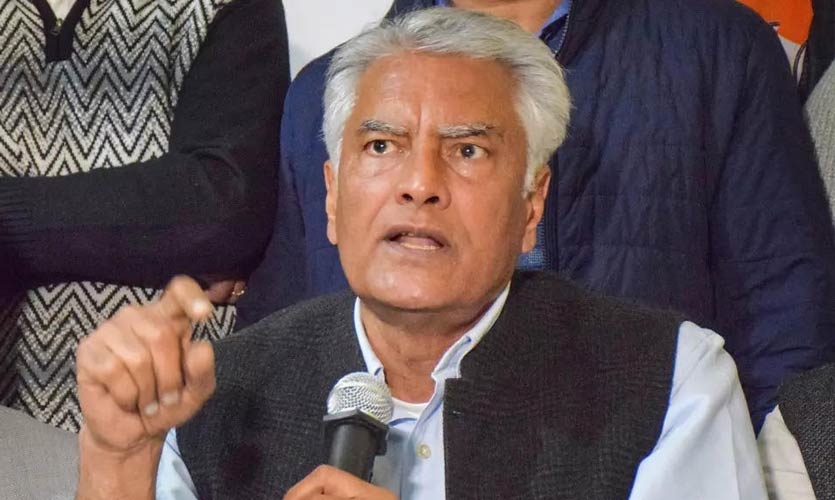The National Commission for Scheduled Castes has issued an order to the Jalandhar Police Commissioner, to file a FIR against former Punjab Congress Committee chief Sunil Jakhar. The order asked for the invocation of the SC/ST Act, for his allegedly objectionable remarks against the Dalit community.
Jakhar was accused of making derogatory remarks against former Punjab chief minister Charanjit Singh Channi, a renowned Dalit leader. In his defence, he said that his statements were quoted “out of context”, claiming that he was speaking to 23 Congress leaders, and was questioning the way of working of the Gandhi family.
Soon after the incident, on Wednesday, former CM Channi met Rahul Gandhi to voice his objection, while another Dalit leader Raj Kumar Verka publicly attacked Jakhar for his remarks. Adding to the political backlash, BJP leader Nimisha Mishra criticised the interview and the statements, asking Sonia Gandhi to apologise to the SC community for the verbal attacks on her party members.
Jakhar was issued a show-cause notice by the Congress disciplinary committee over his remarks, on Monday. Amarinder Singh Raja, the current Punjab PCC chief, hinting toward Jakhar’s statement said, “Indiscipline will not be tolerated.”
Jakhar had also not mentioned anyone by their names in his interview. “The leadership has to know where to keep everybody in place,” he said in the interview. He also used the words: “chugalkhor” and “chaaploos”(gossip-mongers and sycophants), referring to some party members who are supposedly deceiving the party leadership. He also suggested that the party high command must listen to the grassroots party cadre.
According to Jalandhar Police Commissioner Gurpreet Singh Toor, communication has been received regarding the matter, from the SC Commission. The letter states that a complaint was registered by Vijay Kumar on April 7, and that the commission has decided to investigate further into the matter, “in pursuance of the powers conferred upon it under Article 338 of the Constitution”.
“You are hereby requested to submit the facts and information on the action taken on the allegations/matters to the undersigned within 15 days after receipt of this notice either by post or in person or by other means of communication,” read the letter.
“Please take notice that in case the commission does not receive the reply from you within the stipulated time, the commission may exercise the powers of Civil Courts conferred on it under Article 338 of the Constitution of India and issue a summons for your appearance in person or by a representative,” it added.
Jakhar’s remarks have triggered the Dalit activists in Phagwara, causing them to burn his effigy. Some of the protesters also submitted a memorandum to the superintendent of police of Phagwara, asking to register a case against Jakhar under the SC/ST Act.
According to reports, over 139,045 cases of crime against Dalits have been registered in different states, between 2018 and 2020. Uttar Pradesh, Rajasthan, Bihar, and Madhya Pradesh are on the top of the list, as per data from the home ministry.
The practice of traditional segregation between upper castes and Dalits still appears to be prevalent in India. The age-old concept of not allowing Dalit community members to enter temples where upper-caste Hindus worship, still exists. Although various reservations and quotas have been put in place, total upliftment of the Dalit community still remains a challenge in some parts of India.
Read more: What Is The Criminal Procedure (Identification) Bill?
The constitution, for instance, prescribes various provisions to protect the rights of minorities and oppressed communities. Article 17 made the practice of untouchability in India a punishable offence, while Article 14 requires the State to grant equal protection of laws within the territory of India. Additionally, Article 15 prohibits discrimination based on religion, caste, gender, race, and place of birth.
Despite laws, amendments, and regulations, mistreatment of Dalits in India, especially in rural settings, still prevails. Some of them endure severe social discrimination and inter-caste violence, with an inherent bias against the community continually persisting. While there has been a certain amount of progress achieved, or so the Indian government says, instances like these where subtle verbal attacks are launched on mainstream platforms, are indicative of the reality that the community is still suffering.










